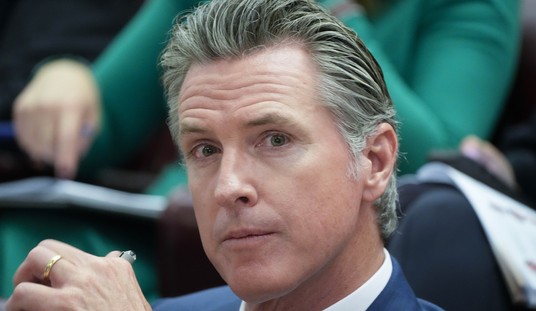Message: I care, you bitter clingers!
Since his party lost the special election to fill Ted Kennedy’s Massachusetts Senate seat, pundits have been proclaiming President Barack Obama in need of a new message. As this week drew to a close, he offered some samples of what it will sound like.
Turning up the volume on the fiery populist rhetoric he’s been deploying against the Wall Street “fat cats” that have become a favorite target, Obama signaled that he intends to pursue new Wall Street regulations as well as health care reform, despite his party having lost its 60-seat supermajority in the Senate.
Of course, Obama played the faux-populism card in the 2008 campaign, too. The reality was a bit different.
Barack Obama’s first major step on the campaign trail — in December 2006 — was to Wall Street, where he snagged the backing of convicted inside trader George Soros and investment banker Robert Wolf, who became CEO of UBS Americas. Before the Wall Street meltdown got into full swing, Swiss banking giant UBS had written off more debt from the subprime mortgage crisis than any other bank; a number of Obama’s top bundlers came from with firms mired in that mess. Such bundlers raised at least 22 percent of Obama’s money during the first half of 2007, and got perks from the Obama campaign. Indeed, Obama’s national campaign-finance chairwoman, Penny Pritzker, helped run Superior Bank — which was at the forefront of securitizing of subprime mortgages, until it collapsed in 2001.
When Wall Street went into meltdown mode, the establishment media ignored that Obama got big donations from associates of Fannie Mae and Freddie Mac, and was one of the all-time recipents of political cash from Lehman Brothers. Before the election Obama voted for TARP. After the election, Obama twisted arms to get the second half of the TARP money, and packed the key economic positions in his White House with the very people who caused the crisis in the first place.
Over time, this information seems to have seeped into the bloodstream of the body politic:
The administration’s bank policies have been a political stumbling block, perhaps as much as health care, according to polls: National Journal polling has found that 76 percent see the administration’s response to the financial crisis as benefiting (separate categories lumped together here) banks, investment companies, major corporations, and wealthy individuals. AFL-CIO-sponsored polling by Hart Research found that, in Massachusetts, 61 percent said recession policies have helped large banks a lot or a fair amount, vs. 18 percent who said the same of working people.
In The Audacity of Hope, Obama wrote that he served as a “blank screen on which people of vastly different political stripes project their own views.” After a year in the Oval Office, the screen is no longer blank. Selling Obama as a populist may prove to be tough sledding.
Ironically, recent reports hint that Obama is taking more economic advice from astroturfer-in-chief David Axelrod, and less from Treasury Secretary Timmy “The Tax Cheat” Geithner. The new, populist proposals not only would not have applied to last year’s meltdown, but might have prevented commercial banks from rescuing investment banks, which would have left taxpayers with a much larger bailout bill. The best argument for Obama’s latest proposal is that some banks have been gaming the current system to access TARP funds. The correct solution to that problem would be to wind down TARP, but Obama’s allies want to keep it going as a slush fund.
Thus, Obama finds himself in a position where the public likely won’t buy him as a populist, even as investors overwhelmingly find him too anti-business and lack confidence of his ability to handle a financial emergency. Well played, sir.
This post was promoted from GreenRoom to HotAir.com.
To see the comments on the original post, look here.








Join the conversation as a VIP Member